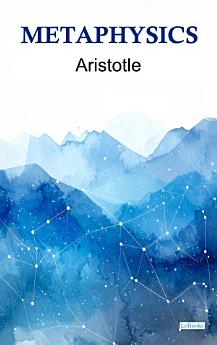Metaphysics - Aristotle
Tungkol sa ebook na ito
Since its composition, Metaphysics has been celebrated for its rigorous analysis and profound influence on both philosophical and theological traditions. Its exploration of universal themes such as the nature of reality, the structure of knowledge, and the search for first principles has ensured its place as a cornerstone of philosophical literature. The clarity and depth of Aristotle's arguments continue to challenge and inspire thinkers, shaping metaphysical inquiry across centuries.
The treatise's enduring relevance lies in its ability to pose fundamental questions about existence and knowledge that remain unresolved and ever-pertinent. By examining the essential structures of reality and the conditions for understanding, Metaphysics invites readers to reflect on the deepest aspects of being and the foundational principles that govern all that is.
Tungkol sa may-akda
Aristotle was a Greek philosopher and polymath, widely recognized as one of the most influential figures in Western philosophy and science. Born in Stagira, a city in northern Greece, Aristotle is known for his works that explore themes such as logic, ethics, politics, metaphysics, and natural sciences. As a student of Plato and later the teacher of Alexander the Great, his writings laid the foundation for much of Western intellectual history.
In 343 BCE, Aristotle was invited by King Philip II of Macedon to tutor his son, Alexander, who would later become known as Alexander the Great. After his time at the Macedonian court, Aristotle returned to Athens and founded his own school, the Lyceum, where he taught and conducted research for twelve years.
Aristotle's influence extended far beyond his own time. During the Middle Ages, his works were extensively studied by Islamic philosophers such as Avicenna and Averroes, and later integrated into Christian theology by scholars like Thomas Aquinas, earning him the title "The Philosopher" in medieval Europe.
His empirical approach to studying nature, observing and classifying living beings, laid the groundwork for the development of biology. Although some of his scientific theories were later corrected, his method of systematic observation and classification remained a core principle in scientific inquiry.







